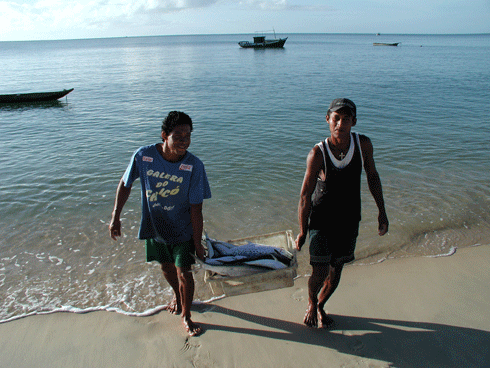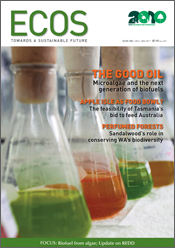
|
Published: 20 December 2010
Oceans can make a comeback, say new reports
Local ocean management is critical for improving people’s lives and ocean health, according to a series of new reports from Conservation International (CI).

|
|
A sustainable harvest of fish is enjoyed by fishermen with rights to the Corumbau Extractive Reserve in Bahia, Brazil. Credit: Guilherme Dutra, Conservation International Brasil
|
The reports, Living with the Sea, People and Oceans, and Marine Managed Areas: What, Why and Where, argue that the global ocean crisis can be solved, and damage caused by human impacts reversed, if policy makers worldwide adopt integrated management plans. Making these changes will also provide social, cultural and economic benefits, including new job opportunities and the potential for increasing household income.
Most of the research was conducted in Belize, Brazil, Fiji, Panama and Ecuador, but it has been supported by more than 50 studies and 100 scientists in 23 countries around the world since 2005.
Living with the Sea reports that thanks to the sedentary habits of several marine species, maintaining healthy local habitats can prevent the loss of biologically unique, rare, or endangered species. Several case studies also demonstrate that locally managed marine management areas help dwindling stocks of wild fish recover, both within and outside protected area borders.
‘This potential to build resilience in marine ecosystems is among the most stunning findings of the reports, and a cause for real optimism,’ said CI’s Senior Vice President for Science and Knowledge, Dr Andrew Rosenberg.
‘The ocean can heal itself, and provide for people – as long as we make coordinated efforts to set aside areas that can flourish with minimal disturbance from human impact, and manage those impacts outside the protected areas.’



